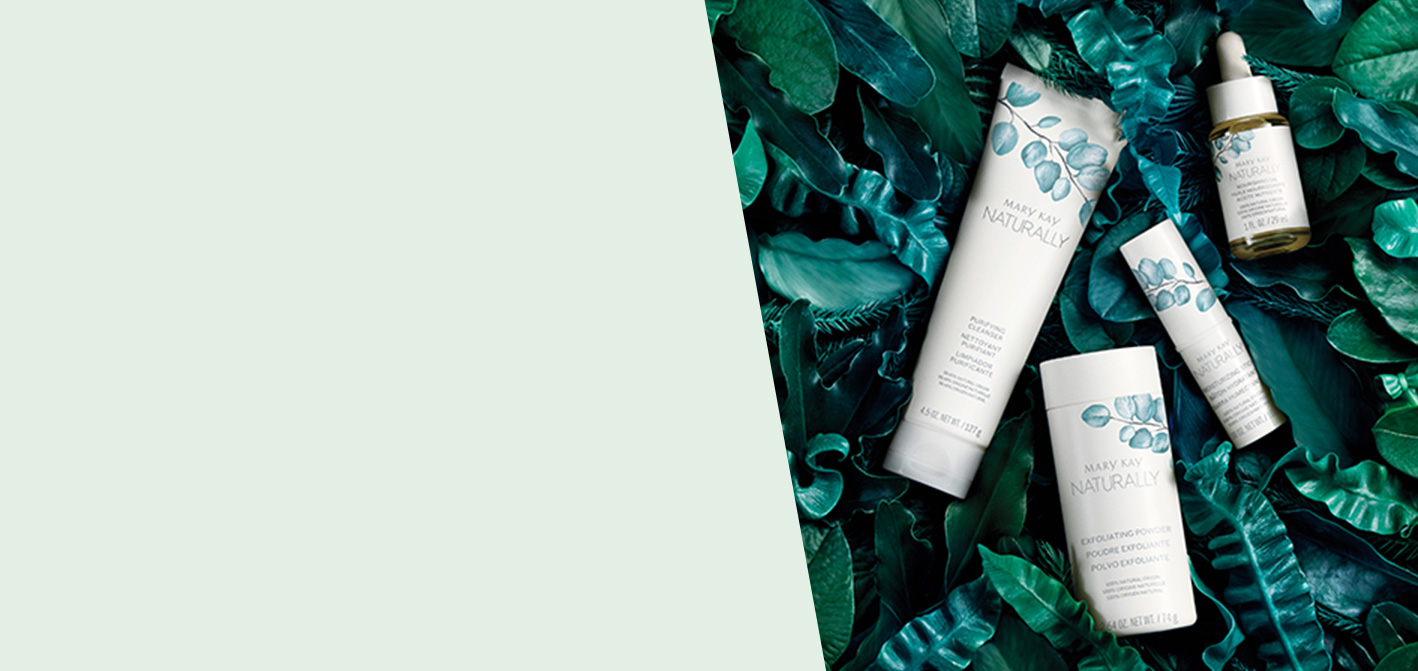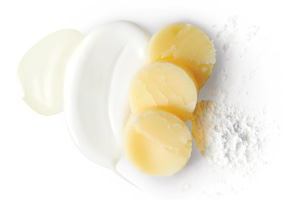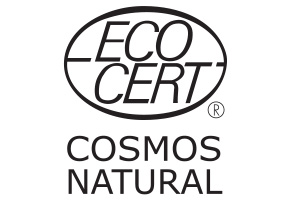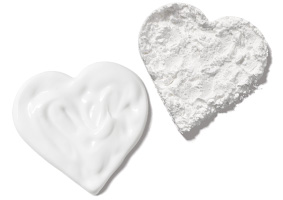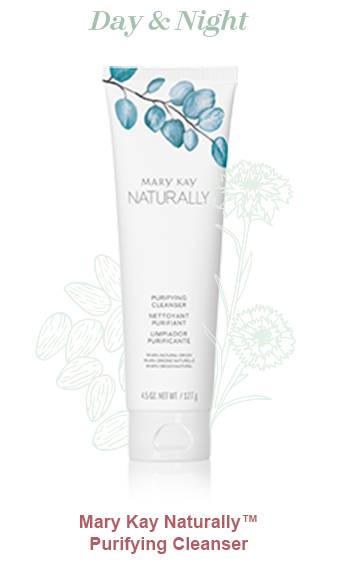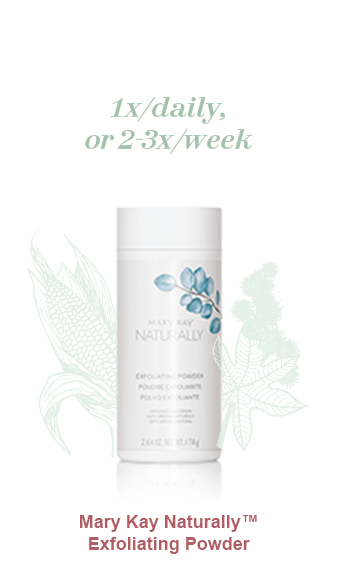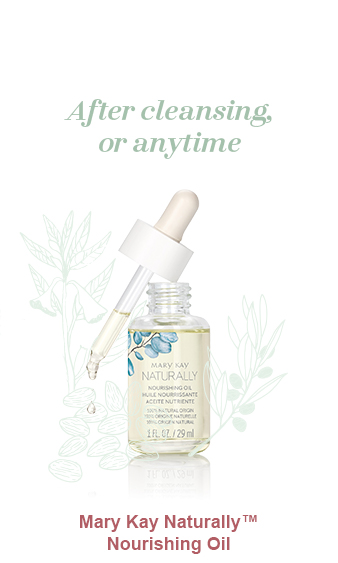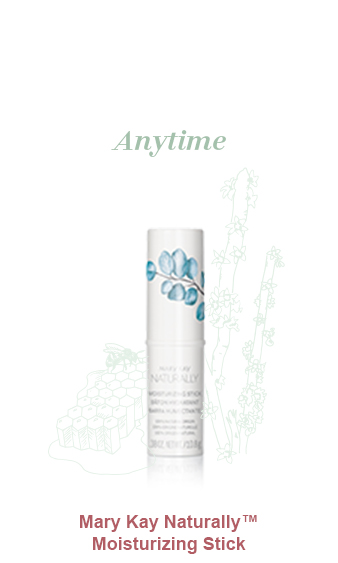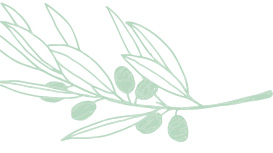Let's face it, trying to figure out what natural skin care is can get overwhelming: Is it safer than chemical or synthetic? Is it different from organic? Are the benefits as good? It's hard enough with so many facial skin care products to choose from -- different forms of cleansers, types of moisturizers, etc. You may even have to know your skin type -- oily, combination or dry skin -- or if you have sensitive skin. And then you have to decide if you should choose natural or something else when you're not even sure what it means? Exhausting!
Well, no need to stress! Here are 5 things to know to help you weed out the clutter of information — and often misinformation — that you can find online.
1. There is no government regulated definition for natural skin care. So, companies can pretty much create their own definition, or leave it vague for you to figure out what they mean. (Seriously?!) Don't waste time wondering. Our definition for Mary Kay Naturally™ is that at least 90% of ingredients are derived from natural sources processed in allowance with third-party standards — currently the COSMOS standard. Natural sources include water, plants, minerals, ingredients of mineral origin and other agricultural ingredients.
2. Both natural and "chemical" facial skin care can be safe. This can really trip people up. In reality, everything is a chemical -- even water (hint: H2O). Many people use the term "chemical" as a synonym for "toxic" or the opposite of natural, but that's not accurate. Nothing is chemical-free. Instead, if it isn't natural then it's synthetic -- but that doesn't make it toxic or harmful. Just like being natural doesn't automatically make it good for you. Poison ivy is plant-based and natural, but you wouldn't apply it as part of your facial cleansing routine. And plenty of people have peanut allergies. There are many examples of something that's natural having adverse effects. What's important is knowing that ingredients are rigorously tested and backed by credible scientific data.
3. Organic is not the same as natural. Although they do have things in common, for instance, neither has a government regulated definition for cosmetic products. So again, a clear explanation of what a company means by organic is important. In general, there are stricter rules on how an ingredient is grown and processed to be considered organic. Yet, it also doesn't automatically mean it’s safer than anything else.
4. Saying "free of" (e.g. free of parabens) has created wrong assumptions. This is a big one! Paraben-free, alcohol-free, free of this and that have gained a mass following. But many of these ingredients are getting a bad rap. Sometimes it's based on a specific type of the ingredient or even outright inaccurate information. It's like saying carbs are bad for you. Some may be better to limit, but not all carbs deserve to be banished from your diet. So, do your research using independent scientific data not hearsay. At Mary Kay, if we can't verify an ingredient’s safety, we won't use it. It's that simple.
5. Natural products can be high-quality and deliver great benefits. Some think there must be trade-offs to choosing natural products. They think either natural can't work as well, last as long or feel as good compared to other products. But these aren't the days of going to the farmers market for fruits and veggies to mix up your own cleanser or moisturizer because there are no natural options. Availability of ingredients, research on their benefits, experts on formulating with these ingredients have only grown and improved. So, whether cleansing, moisturizing or pampering your skin with nourishing benefits, you can expect high-quality natural products to deliver great results.
So now that you know a little more about natural skin care, let's talk about specific things you might look for when choosing products.
Certification. While a company should define what natural or naturally derived means to them, some go an extra step and get certified as natural. There are many certifying bodies, and typically they have their own set of standards. So, what they require to be certified "natural" can vary. But certification still gives a level of confidence that an independent organization has established guidelines and evaluated the product and processes to meet those standards. For our initial product offering of Mary Kay Naturally™ skin care, Mary Kay chose COSMOS Natural certified by EcoCert. To learn more about the COSMOS standard, see https://www.cosmos-standard.org/about-the-cosmos-standard.
Ingredients. Nature offers lots of ingredients, but which to choose? First, it will vary depending on the product and benefit you want. You don't necessarily need the same fruit or plant across all your products. It's more important that what's in the product supports the benefits.
After all, what you put in a cleanser for cleansing skin is different than what you want in a moisturizer for hydrating skin. Or an oil that may also be hydrating can have very different ingredients due its oil format versus a cream or a lotion. So, that could mean an endless combination of possibilities, which makes it all the more fun!
Social and environmental commitment. Natural often also means wanting to buy from a company that cares. Of course, more people than ever expect this from any company selling any product. So, it's good to consider this. Through our Pink Changing LivesSM program, we empower women, transform lives, care for the planet and inspire others. And what could be better than getting great natural products from a company that also reflects your values!
Just remember, whatever you choose as your facial cleanser, moisturizer or other skin care product, it's about reflecting the beauty of you! And only you get to own that. Enjoy!



